Reefer is a trucking industry jargon used to describe refrigerated trucking, a popular method of transporting freight (such as medicine, foods, and perishable goods) using temperature-controlled trucks or trailers.
Reefer trucks and trailers also referred to simply as ‘reefers’, play a crucial role in global supply chains and move millions of tons of consumer staples, such as fruits and vegetables, meat, poultry, beverages, and medicines, without the threat of spoilage during transit.
In today’s highly connected society, a significant percentage of cargo is routinely transported across different cities, states, and countries using tractor-trailers. Refrigerated trucks reduce the load burden on different modes of transport, including air, sea, and rail, particularly in areas with little or no access to ports or depots.
In this article, we’ll explain what a reefer in the trucking industry is and define the most popular terms associated it. We’ll also talk about different types of reefer equipment and refrigeration units, as well as some of the common products that are transported in reefer trucks.
What Does Reefer Mean in the Trucking Industry?
‘Reefer’ is an abbreviation for ‘refrigerated’ and is used to describe a refrigerated container, trailer, or truck. Both reefer trucks and reefer trailers are commonly used in cold chain logistics and transport temperature-controlled cargo, including food, chemicals, pharmaceuticals, and similar products.
However, to understand what refrigerated trucking entails, we need to learn about the main components involved.
Reefer Trucks
A reefer truck is a freight vehicle comprising a semi-tractor and a refrigerated trailer powered by an active cooling system.
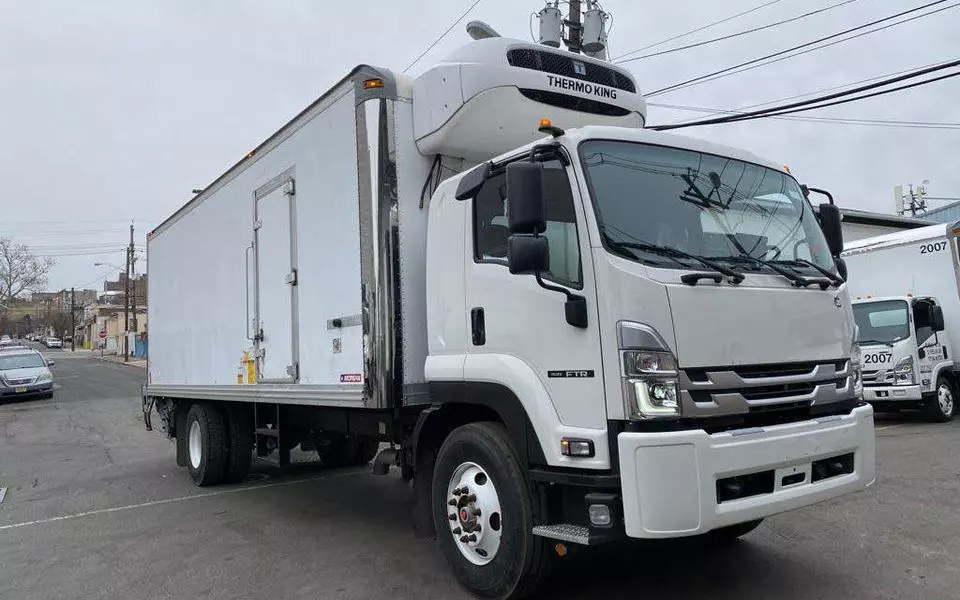
These trailers employ different cooling methods, such as cryogenic cooling systems and automated or manual temperature adjustment controls assisted by diesel-powered auxiliary power units (APUs) or generators.
Today, many leading brands like Carrier and Thermoking specialize in manufacturing reefer equipment, cooling units, and gensets. However, reefer trucks aren’t the only type of refrigerated vehicle.
Other options include insulation vans, freezer straight trucks, and semi-freezer chiller vans, all of which are more suitable for less-than-truckload (LTL) shipping.
Reefer Containers
Reefer containers are shipping containers equipped with a cooling system usually powered by diesel generators.
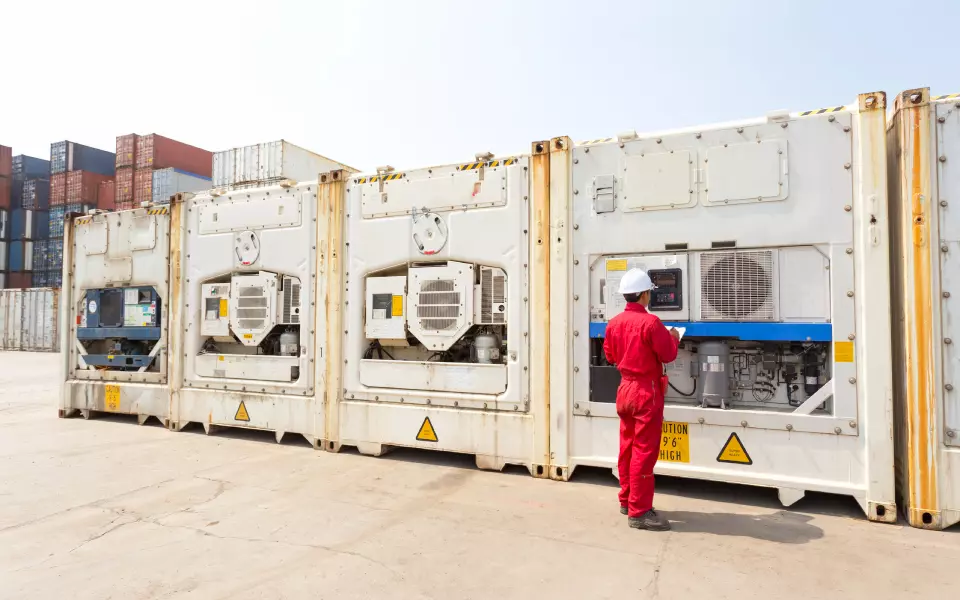
These refrigerators are commonly available in 20, 40, and 45-foot general purpose and high-cube shipping containers and are among the most important types of containers used in global intermodal logistics.
Refrigerated shipping containers move temperature-sensitive cargo across vast distances through various modes of transport including road, rail, and sea. In trucking, these containers are usually transported using intermodal trailers.
Reefer Trailers
A reefer trailer is a refrigerated trailer that is designed to transport temperature-sensitive products. In comparison to refrigerated containers, reefer trailers are a single unit comprising a trailer and a refrigerated storage compartment.
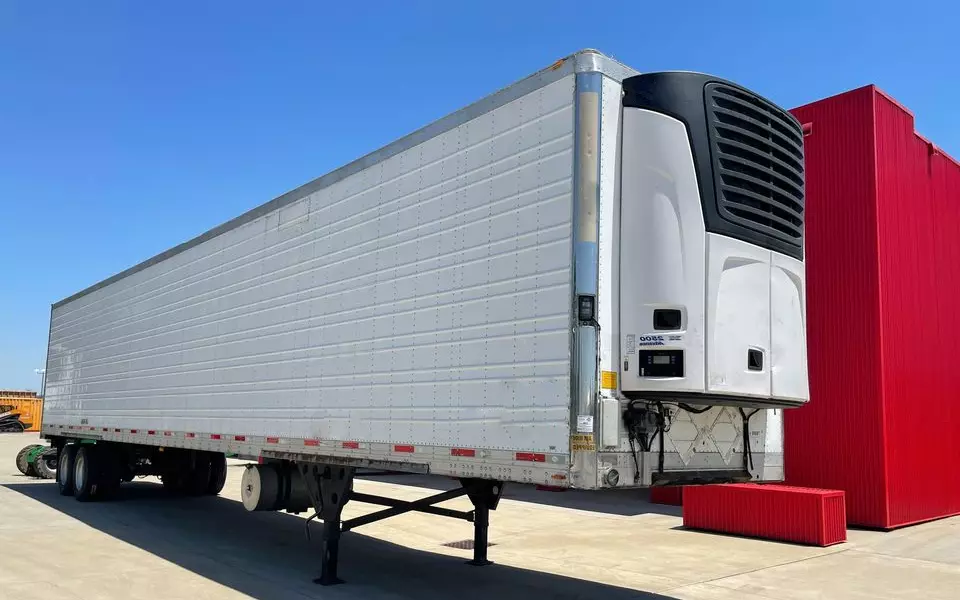
Although reefer trailers are equipped with a built-in refrigeration unit and insulated walls, the storage compartment cannot be removed from the trailer. This also means that they can’t facilitate intermodal shipping.
Reefer Freight
Reefer freight refers to perishable goods, such as meat, poultry, vegetables, pharmaceuticals, and all other items that require temperature and humidity control to prevent spoilage.
Reefer Equipment Specifications
As mentioned above, reefer equipment refers to trucks, vans, semi-trailers, and containers that are fitted with refrigeration units, in order to transport temperature-sensitive cargo. These refrigeration units vary in terms of specifications, which we’ll elaborate on below.
- Temperature Range – Standard reefer trucks used to transport fruits, dairy, meat, and other food products are built to maintain an internal temperature between 77°F and -13°F (25 to -25 °C). However, many reefers designed for specialized cargo such as medicines can go much lower, maintaining an internal temperature of up to -76 °F (-60 °C).
- Size & Capacity – Reefer sizes vary depending on the type of equipment. For instance, reefer containers are typically 20-foot, 40-foot, or 45-foot in length. In contrast, refrigerated vans and box trucks commonly range between 15-20 feet in length. The larger the reefer equipment, the higher its required cooling capacity in BTUs (British Thermal Units).
- Energy Source – As mentioned early, reefer trucks are powered by a refrigeration unit or cooling system installed inside or near the cargo compartment. However, reefer containers on trailers are typically powered by a portable generator or the truck’s APU. In either case, these cooling units require a power source, such as diesel, electricity, or both, to run.
- Weight – Due to the size and capacity differences, cooling equipment also varies in weight and can affect the gross vehicle weight rating (GVWR). In other words, the larger the cooling capacity, the lower the total load weight a reefer can carry to comply with regulations.
- Efficiency – Reefers can be powered by electricity or fuel. Electric reefers are generally more cost-efficient since they cost less and require less frequent maintenance. Meanwhile, diesel-powered refrigerated storage can provide cooling for longer periods since they run on fuel, which can be refilled on a needs basis.
- Monitoring Technology – Reefers are equipped with different sensors and instruments to monitor temperature, humidity, and energy consumption. Many modern reefers collect other types of data, including cooling time, errors, driver logs, and more.
Types of Refrigeration Units
In this section, we’ll be taking a closer look at the various types of refrigeration units available on the market, including diesel-powered, electric, hybrid, and cryogenic units.
Diesel-Powered Refrigeration Units
Diesel-powered refrigeration units are the most popular type in the market, mainly because they’re more suitable for long transits. These units are powered by an independent diesel engine mounted on the cargo compartment.
Since diesel is readily available, drivers can refill them conveniently during transit. It’s also important to note that diesel-powered reefers also offer more power, which translates to higher cooling capacities.
As a result, these units are the go-to options for extreme weather conditions. However, just like any other engine, they’re noisy, emit greenhouse gases, and are susceptible to wear and tear-induced breakdowns.
Electric Refrigeration Units
As the name suggests, electric reefers are powered by electricity from an external power source, meaning they provide a limited cooling duration. As a result, they’re commonly used for short hauls, typically within a 100-mile radius.
Many cities and states have strict noise and emissions regulations. Hence, electric reefers are often used as an alternative to diesel reefers. However, since they are equipped with batteries, they can impact delivery schedules due to unavoidable charging times and may sometimes not be suitable for long-haul trips.
Hybrid Refrigeration Units
Hybrid refrigeration units use an electric motor with a diesel engine to power the compressor. The electric motor is used when the truck is at rest or traveling at low speeds due to traffic or poor road conditions.
The diesel engine comes in during high-speed travel or when the battery charge is low. Hybrid reefers offer truckers the best of both worlds in terms of power and efficiency. They’re more eco-friendly than diesel units and a lot more reliable than electric units.
Cryogenic Refrigeration Units
Cryogenic refrigeration units are the newest type of reefers in the market. Unlike their predecessors, they neither employ an electric motor nor a diesel engine to operate.
Instead, they use liquid nitrogen or carbon dioxide to cool the air inside the storage compartment. These reefers are mainly used to transport pharmaceuticals, such as vaccines.
The units work by evaporating liquid nitrogen or carbon dioxide to create a chilled gas circulated throughout the cargo compartment. Since no fuel or electricity is involved in the process, this cooling method produces zero emissions or pollutants.
Moreover, cryogenic units require less maintenance since they have fewer working parts and don’t require oil changes or filter replacements. However, liquid nitrogen and carbon dioxide are difficult to acquire, and installing these units can be relatively expensive, especially for smaller trucking companies.
Types of Cargo That Reefer Trucks Transport
Reefer trucks play a fundamental role in global cold chain logistics. They’re used to transport a wide variety of cargo types in a temperature-controlled environment, ranging from fresh fruits and vegetables to frozen food and chemicals.
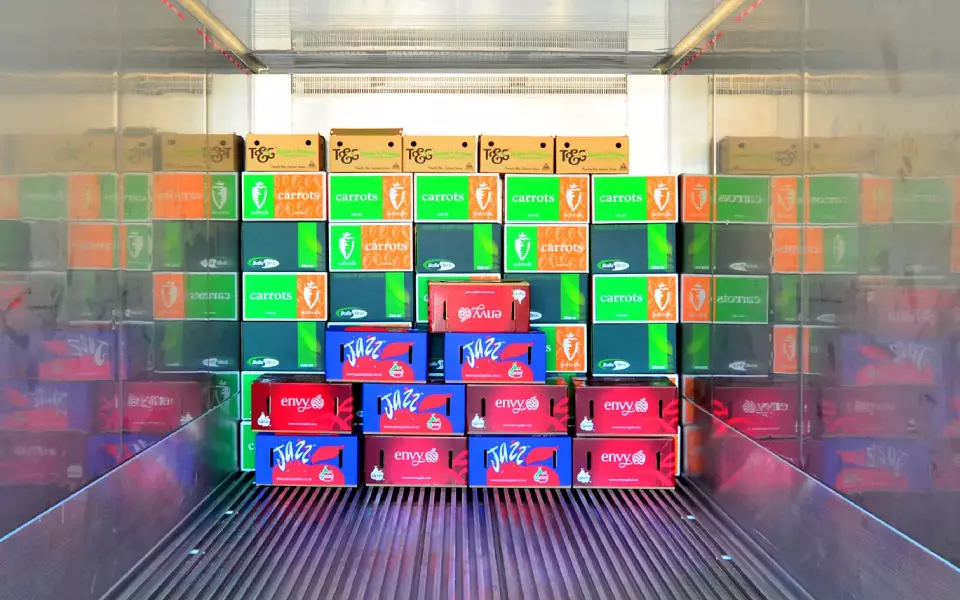
The pharmaceutical industry also uses reefers to transport life-saving medicine and vaccines that require temperature control. Below, we’ll explore each cargo category in more detail.
- Food – Most reefer trucks are used to transport refrigerated food products and perishables, such as meat, vegetables, fruits, shellfish, melons, cheese, and nuts.
- Beverages – Chilled beverages transported via reefers include alcohols like wine and spirits, milk, malts, and carbonated sodas.
- Pharmaceutical – Pharmaceuticals are goods that usually include medicines, such as insulin, antibiotics, injections, and vaccines. Slight temperature variances may even affect efficacies.
- Chemical – Products with dangerous chemicals need to be transported in controlled environments. These include safety matches, organic peroxides, and other flammable liquids such as esters and ketones.
- Livestock – Many companies transport livestock in temperature-controlled cargo vessels like cattle and poultry. Controlling the temperature reduces the risk of disease and ensures a fresh supply of air for the animals.
- Electronics – Many shippers use reefers to ship sensitive electronic items, such as semiconductor chips, capacitors, and transistors.
- Others – Other items transported via reefers include artwork, flowers, and luxury products requiring temperature and humidity control to preserve their structural integrity and conditions.
Advantages & Disadvantages of Reefer Trucks
Reefer trucks offer a lot of benefits for shippers and truckers. However, they’re not without a few drawbacks. We’ve created a table to highlight the main advantages and disadvantages.
| Category | Advantages | Disadvantages |
| Transportation & Costs | Allows shippers to move perishable goods over long distances. | Reefers increase operating costs and expenses, mainly fuel and maintenance. |
| Effectiveness & Quality | Reefers prevent spoilage and maintain product quality for longer periods. | Diesel reefers make a lot of noise and produce more greenhouse emissions, increasing pollution levels. |
| Temperature Control | They allow truckers to enable precise temperature control with thermostats to help set cooling to optimum levels. | Reefer trucks require drivers with more technical expertise to operate and maintain reefer trucks properly. |
| Operation & Maintenance | Reefers can operate continuously for hours at a time without refueling or charging. | Like most mechatronic equipment, reefers require regular repairs and maintenance due to wear and tear. |
| Versatility & Application | Reefer trucks can transport a wide variety of cargo, from food products to chemicals and pharmaceuticals. | Reefer trucks may require loading docks or temperature-controlled warehouses for proper cargo handling and storage. |
7 Best Practices When Operating Reefer Trucks
Whether you’re looking to operate a reefer truck or add them to your fleet, It’s important that you understand how they work and what to best use them. Below, we share seven best practices you can adopt to improve operational efficiency.
1. Pre-Cool Reefer Units
One of the best practices you can adopt to preserve cargo quality is pre-cooling your reefer unit before storage. Doing so will minimize temperature fluctuations during handling and transit.
2. Plan Ahead
Refrigerated transportation requires dynamic planning. Therefore, ensure that you plan loading, scheduling, and routing proactively. You can apply the First In-Last Out (FILO) method when loading your truck to maximize cooling consistency.
When handling, ensure shippers/receivers have sufficient staff and equipment to prevent prolonged handling that could lead to spoilage. Even though reefers maintain a consistent internal temperature, you should plan your route as efficiently as possible.
The more time you spend on the road, the more fuel or electricity you consume, which increases your cost per mile.
3. Make Use of Technology
Leverage different trucking technologies that are readily available in the market, such as electronic logging devices (ELDs), transport management systems, and digital freight matching (DFM) tools to ensure maximum equipment utilization.
You can also equip reefers with monitoring and alert systems to improve security and respond quickly to breakdowns or unexpected temperature drops.
4. Conduct Preventive Maintenance
There’s little margin for error in cold chain logistics. Hence, reefer truck operators must keep their trucks and cooling units in excellent condition by managing maintenance activities.
For instance, if you’re using a diesel reefer, make sure you change the oil and filter on time (typically after 1,000 hours of operation). It’s best to always follow the manufacturer’s instructions on maintenance.
5. Prepare Contingency Plans
The last thing you want as a reefer truck operator is to have your unit malfunction during transit. With that in mind, you should learn how to diagnose the most common issues and carry essential tools and parts for simple repairs and replacements.
Other contingencies include having a standby reefer trailer or establishing interchange agreements with other reefer service providers on your route.
6. Train Employees
Operating a reefer truck requires additional technical expertise compared to driving regular trucks. Therefore, you need to provide essential training related to cold chain logistics, routing, repairs, and maintenance.
7. Adhere to Regulations and Policies
Finally, since reefer trucks transport perishable goods, operators need to comply with the policies and regulations set by governing bodies. Below are some examples that should be considered:
- Safe Quality Food (SQF) guidelines ensure food safety and quality.
- Food Safety Modernization Act (FSMA), which is established by the Food and Drug Administration (FDA), stipulates that all companies transporting food products must prioritize food safety and prevent contaminations.
- Hazard Analysis and Critical Control Points (HACCP) system, a widely known guide for risk management in the food supply chain.
- Sanitary Transportation of Human and Animal Food rule, requires transportation of food to be under sanitary conditions and that contamination prevention steps are taken.
These regulations and bodies are in place to monitor refrigerated transportation activities and ensure shippers and truckers follow their guidance to prevent contamination, spoilage, and potential hazards.
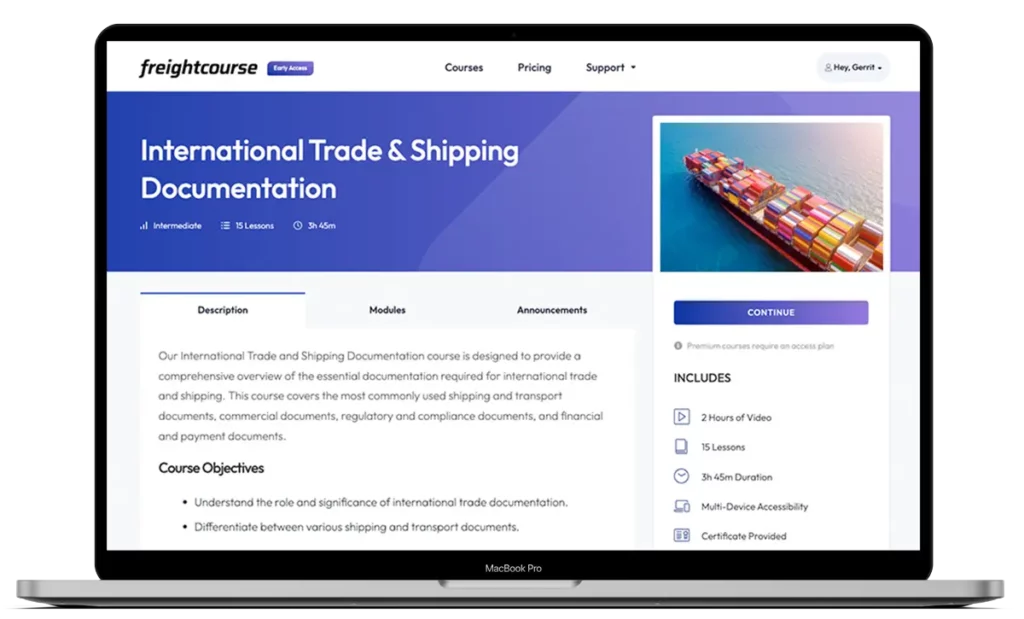
Get Free Course Access
If you enjoyed the article, don’t miss out on our free supply chain courses that help you stay ahead in your industry.

Andrew Lin
Co-Founder & Writer
at freightcourse
About the Author
Andrew is a multi-business owner with over 12 years of experience in the fields of logistics, trucking, manufacturing, operations, training, and education.
Being the co-founder of freightcourse has given him the ability to pursue his desire to educate others on manufacturing and supply chain topics.
Follow us